Publication type: Book Chapters
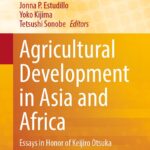
Are the Lessons from the Green Revolution Relevant for Agricultural Growth and Food Security in the Twenty-First Century?
Abstract The Green Revolution had profound positive impacts on human welfare and economic development across the developing world. However, its global reach was limited by agroclimatic, infrastructural, social, and political constraints. Regional disparities in poverty reduction, intra-societal inequities, and gender differences in the distribution of...

Improving In-Kind Food-Based Safety Nets: The Case of India’s Public Distribution System
Abstract A leading economist recently stated that “food security may be the defining global challenge of the Century.” And in underscoring the importance of social protection, the head of an international organization declared that “[w]e must recognize, share, scale up and build on these successful...

Green Revolution: Impacts, Limits, and the Path Ahead
Abstract A detailed retrospective of the Green Revolution, its achievement and limits in terms of agricultural productivity improvement, and its broader impact at social, environmental, and economic levels is provided. Lessons learned and the strategic insights are reviewed as the world is preparing a “redux”...
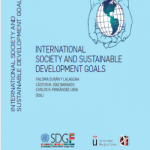
Getting to zero hunger: Learning from the MDGs for the SDGs
In International Society and Sustainable Development Goals, Chapter 5. Portada: Thomson Reuters. ARANZADI.
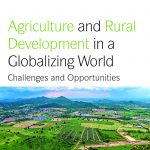
Agriculture and Rural Development in a Globalizing World
Abstract This introduction presents an overview of the key concepts discussed in the subsequent chapters of this book. The book analyzes farm-level data from four low-income sub-Saharan African countries to gain insight into possible reasons for the low adoption of modern productivity-enhancing inputs, such as...
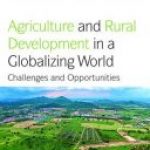
Understanding the Multidimensional Nature of the Malnutrition Problem in India
Abstract India’s slow progress in combating its malnutrition problem was highlighted most starkly when a comparison between its rates of poverty and malnutrition decline between the mid-1990s and mid-2000s was brought to the fore, with the release of the National Family Health Survey in 2005....

Unraveling India’s Malnutrition Dilemma – a Path Toward Nutrition-sensitive Agriculture
Abstract This chapter makes the case for India to shift to a nutrition-focused agricultural sector that goes beyond staple grain productivity to emphasize the production and consumption of micronutrient-rich foods. The chapter first reviews the nutrition trends in India, characterized by slow progress in addressing...
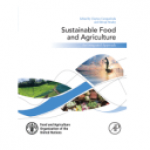
Policies for Sustainable Food Systems
Abstract Over the past 50 years, agricultural growth has contributed to jumpstarting overall economic growth and poverty reduction in many countries, but the progress has not been uniform and has often been accompanied by significant environmental costs. To adequately and sustainably feed the ever-growing population,...

The Green Revolution and Crop Biodiversity
Abstract Crop diversity in the fields of the developing world has changed fundamentally over the past 200 years with the intensification and commercialisation of agriculture. This process accelerated with the advent of the Green Revolution (GR) in the 1960s when public sector researchers and donors...

Implementers of law or policymakers too?
Abstract The literature on law and public policy in developing countries like India is robust in its appreciation of the policymaking role of legislators, the judiciary and upper echelons of bureaucracy. However, the lower rung of bureaucracy or the street-level bureaucrats who interact with citizens...

